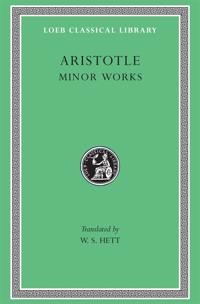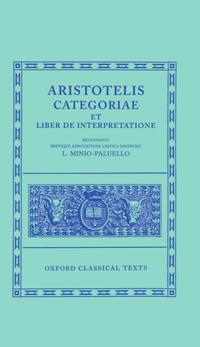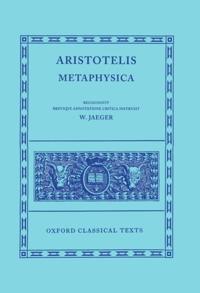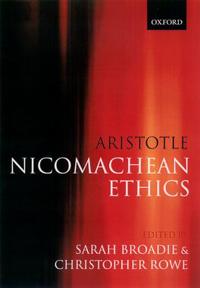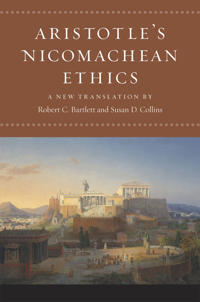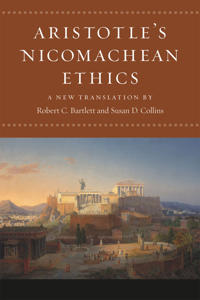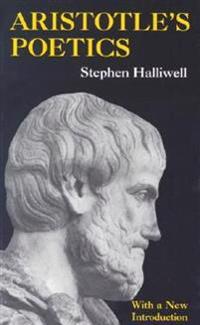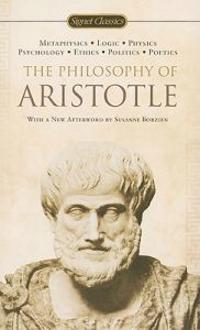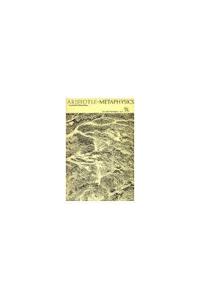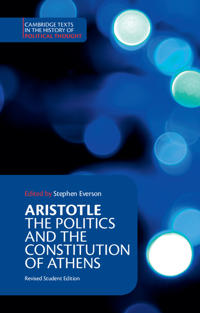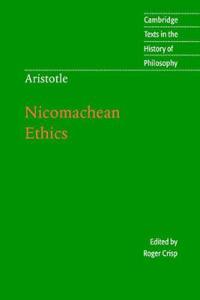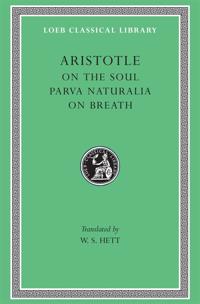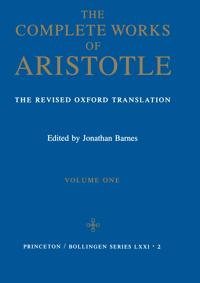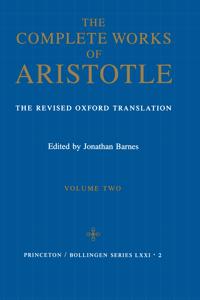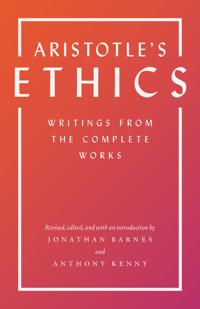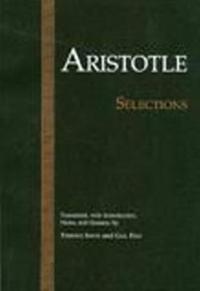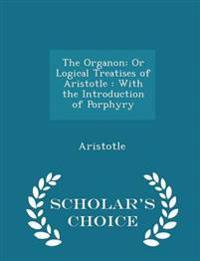Aristotle, Minor Works, Loeb 307 (Inbunden)
avAristotle, W. S. (TRN) Hett, Aristotle
ISBN: 9780674993389 - UTGIVEN: 1963-06Aristotle, great Greek philosopher, researcher, reasoner, and writer, born at Stagirus in 384 BCE, was the son of Nicomachus, a physician, and Phaestis. He studied under Plato at Athens and taught there (367 47); subsequently he spent three years at the court of a former pupil, Hermeias, in Asia Min[...]
The Rhetoric and the Poetics of Aristotle (Pocket)
avAristotle
ISBN: 9780075546023 - UTGIVEN: 1984-02This text, translated by Rhys Roberts and Ingram Bywater, contains an introduction by Edward P.J. Corbett.[...]
Aristotle Categoriae et Liber de Interpretatione (Inbunden)
avAristotle
ISBN: 9780198145073 - UTGIVEN: 1963-03Aristotle Topica Et Sophistici Elenchi (Inbunden)
avAristotle
ISBN: 9780198145165 - UTGIVEN: 1958-12-01Aristotle: Politics, Books V and VI (Inbunden)
avAristotle
ISBN: 9780198235354 - UTGIVEN: 1999-01-21Aristotle - Nicomachean Ethics (Häftad)
avAristotle
ISBN: 9780198752714 - UTGIVEN: 200202Amongst the works of Aristotle, the Nicomachean Ethics stands virtually alone in speaking not only to classicists, historians of ideas, and technical philosophers, but to anyone trying to make sense of practical human ideals. In this major new presentation, Aristotle's most engaging work has been fr[...]
Aristotle's Nicomachean Ethics (Inbunden)
avAristotle, Robert C. Bartlett, Susan D. Collins
ISBN: 9780226026749 - UTGIVEN: 201106"The Nicomachean Ethics", along with its sequel, "the Politics", is Aristotle's most widely read and influential work. Ideas central to ethics - that happiness is the end of human endeavor, that moral virtue is formed through action and habituation, and that good action requires prudence - found the[...]
Aristotle's Nicomachean Ethics (Pocket)
avAristotle, Robert C. Bartlett, Susan D. Collins
ISBN: 9780226026756 - UTGIVEN: 201204The "Nicomachean Ethics" is one of Aristotle's most widely read and influential works. Ideas central to ethics - that happiness is the end of human endeavor, that moral virtue is formed through action and habituation, and that good action requires prudence - found their most powerful proponent in th[...]
Aristotle's Poetics (Pocket)
avStephen Halliwell, Aristotle, Stephen Halliwell
ISBN: 9780226313948 - UTGIVEN: 1998-12This interpretation of Aristotle's "Poetics" seeks to demonstrate that it is a coherent statement of a challenging theory of poetic art and that it hints towards a theory of mimetic art in general. Assessing this theory against the background of earlier Greek views on poetry and art, particularly Pl[...]
The Philosophy of Aristotle (Pocket)
avAristotle
ISBN: 9780451531759 - UTGIVEN: 2011-01More than two thousand years ago, Aristotle established unique standards of philosophic inquiry, observation, and judgment. This book offers a contemporary reevaluation of the philosophy of the master of Western thought, and shows his vital, continuing influence in our modern world.
[...]Aristotle-Metaphysics (Pocket)
avAristotle
ISBN: 9780472060429 - UTGIVEN: 1960-06Aristotle's great work translated into English with an index giving Greek, Latin, and English forms of key terms
[...]Aristotle: The Politics and the Constitution of Athens (Häftad)
avAristotle
ISBN: 9780521484008 - UTGIVEN: 1996-10This new collection of Aristotle?s political writings provides the student with all the necessary materials for a full understanding of his work as a political scientist. Not only does it offer an unusually lucid and accessible account of The Politics, it also shows the relation between this and his[...]
Aristotle: Nicomachean Ethics (Häftad)
avAristotle
ISBN: 9780521635462 - UTGIVEN: 200003Aristotleâs Nicomachean Ethics, based on lectures that he gave in Athens in the fourth century BCE, is one of the most significant works in moral philosophy, and has profoundly influenced the whole course of subsequent philosophical endeavour. It is soundly located within a philosophical tradit[...]
Aristotle (Inbunden)
avAristotle
ISBN: 9780674993181 - UTGIVEN: 198907Aristotle, great Greek philosopher, researcher, reasoner, and writer, born at Stagirus in 384 BCE, was the son of Nicomachus, a physician, and Phaestis. He studied under Plato at Athens and taught there (367-347); subsequently he spent three years at the court of a former pupil, Hermeias, in Asia Mi[...]
Aristotle Poetics/Longinus on the Sublime/Demetrius on Style (Inbunden)
avAristotle, Longinus, Demetrius, Donald Russell
ISBN: 9780674995635 - UTGIVEN: 1996-03-01The Complete Works of Aristotle (Inbunden)
avAristotle
ISBN: 9780691016504 - UTGIVEN: 198409"The Oxford Translation of Aristotle" was originally published in 12 volumes between 1912 and 1954. It is universally recognized as the standard English version of Aristotle. This revised edition contains the substance of the original translation, slightly emended in light of recent scholarship; thr[...]
The Complete Works of Aristotle (Inbunden)
avAristotle
ISBN: 9780691016511 - UTGIVEN: 198409The Oxford Translation of Aristotle was originally published in 12 volumes between 1912 and 1954. It is universally recognized as the standard English version of Aristotle. This revised edition contains the substance of the original Translation, slightly emended in light of recent scholarship; three[...]
Aristotle's Ethics (Häftad)
avAristotle
ISBN: 9780691158464 - UTGIVEN: 2014-07Aristotle's moral philosophy is a pillar of Western ethical thought. It bequeathed to the world an emphasis on virtues and vices, happiness as well-being or a life well lived, and rationally motivated action as a mean between extremes. Its influence was felt well beyond antiquity into the Middle Age[...]
Aristotle (Pocket)
avTerence Irwin, Gail Fine, Aristotle
ISBN: 9780915145676 - UTGIVEN: 199510A tour de force of scholarship and the art of translation, this volume includes a fully integrated set of translations by a single team, a feature enabling Greekless readers to read widely and deeply in Aristotle with continuity, appreciation for his use of technical terminology and for the structur[...]
The Organon: Or Logical Treatises of Aristotle: With the Introduction of Porphyry - Scholar's Choice Edition (Häftad)
avAristotle
ISBN: 9781295944910 - UTGIVEN: 2015-02The Rhetoric and the Poetics of Aristotle (Häftad)
avAristotle
ISBN: 9781453710326 - UTGIVEN: 2011-05

